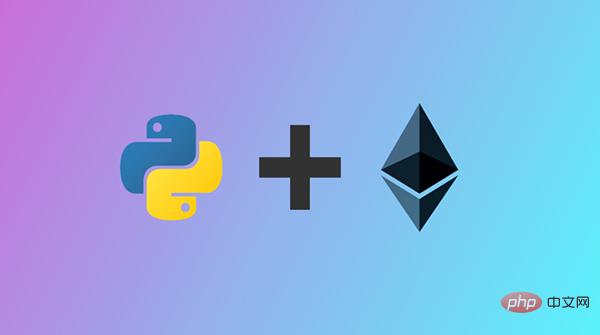
想要透過 Python 存取 Ethereum,從 Ethereum 官方的 Github 中可以看到有兩種模組可以達成:web3.py 和 pyethereum 。就我目前的理解來說,兩者的差異在於web3.py 主要是作為外部存取Ethereum 的客戶端,也就是說web3.py 函數庫本身不會成為區塊鏈節點,也不會進行區塊鏈同步,而是連接一個區塊鏈上的節點,把區塊鏈當成是外部資料庫一樣取用而已;而pyethereum 則比較像是geth 那樣,是用來把自己做成一個區塊鏈節點,會正常進行區塊同步,也可以當礦工開始挖礦。
在本篇當中,因為是想要一個輕量級的客戶端來與區塊鏈互動,並不想要準備龐大的儲存空間來存放區塊鏈的資料,因此會以web3. py 為主。
web3.py 可以直接透過pip 安裝。
pip install web3
要注意的是,在 Windows 上想安裝時,會需要事先安裝 Visual C Builder,否則在安裝的最後階段會因為無法編譯而失敗。
web3.py 因為自身不會作為一個區塊鏈的節點存在,因此它需要有一個節點用來存取區塊鏈上的資料。一般來說最安全的方式應該是自己使用 geth 或 parity 來自建節點,不過如果在不想要自建節點的狀況時,可以考慮看看 infura 提供的 HTTP 節點服務。
以 infura 現在的 API 來說,如果要連結 Ropsten 測試鏈,連結的網址是 https://ropsten.infura.io/v3/api_key,其中 api_key 要去註冊帳號才取得。以下的程式仿照了 web3.py 內建的 auto.infura 的作法,會從環境變數讀取 INFURA_API_KEY 這個參數來組出 infura.io 的 HTTP 位址,用來建立跟 Ropsten 測試鏈的連線。
import os
from web3 import (
HTTPProvider,
Web3,
)
INFURA_ROPSTEN_BASE_URL = 'https://ropsten.infura.io/v3'
def load_infura_url():
key = os.environ.get('INFURA_API_KEY', '')
return "%s/%s" % (INFURA_ROPSTEN_BASE_URL, key)
w3 = Web3(HTTPProvider(load_infura_url()))
在開始存取合約之前,需要先談談什麼是 ABI 。在 Ethereum 中,因為合約都是以編譯的 binary code 形式存在,因此其實函數函式庫沒辦法直接知道合約傳輸的內容到底是什麼,因為合約的回傳值全都是 binary。因此在操作合約之前,需要提供一份 ABI 文件,告訴函數庫如何使用合約。
# Assume the contract we're going to invoke is a standard ERC20 contract.
with open("erc20.abi.json") as f:
erc20_abi = json.load(f)
# Web3 accept only checksum address. So we should ensure the given address is a
# checksum address before accessing the corresponding contract.
contract_addr = w3.toChecksumAddress('0x4e470dc7321e84ca96fcaedd0c8abcebbaeb68c6');
erc20_contract = w3.eth.contract(address=contract_addr, abi=erc20_abi)
for func in erc20_contract.all_functions():
logger.debug('contract functions: %s', func)
logger.debug("Name of the token: %s", erc20_contract.functions.name().call())
這裡假設我們想要存取 Ropsten 測試鏈上地址是 0x4e470dc7321e84ca96fcaedd0c8abcebbaeb68c6 的智慧合約。這個合約是透過 etherscan 隨便找的某個 ERC20 的合約,因此可以用標準的 ERC20 的 ABI 來存取它。我們在建立這個合約的instance 時,先跑一個迴圈印出合約內所有的function(這個步驟其實是在列出ABI 上的信息),接著試著呼叫合約中的name() 來取得這個合約宣告的代幣名稱。最後輸出的內容如下:
2018-09-07 15:02:53,815 | __main__ | DEBUG | contract functions: <Function name()> 2018-09-07 15:02:53,816 | __main__ | DEBUG | contract functions: <Function approve(address,uint256)> 2018-09-07 15:02:53,824 | __main__ | DEBUG | contract functions: <Function totalSupply()> 2018-09-07 15:02:53,824 | __main__ | DEBUG | contract functions: <Function transferFrom(address,address,uint256)> 2018-09-07 15:02:53,824 | __main__ | DEBUG | contract functions: <Function decimals()> 2018-09-07 15:02:53,824 | __main__ | DEBUG | contract functions: <Function balanceOf(address)> 2018-09-07 15:02:53,824 | __main__ | DEBUG | contract functions: <Function symbol()> 2018-09-07 15:02:53,825 | __main__ | DEBUG | contract functions: <Function transfer(address,uint256)> 2018-09-07 15:02:53,825 | __main__ | DEBUG | contract functions: <Function allowance(address,address)> 2018-09-07 15:02:54,359 | __main__ | DEBUG | Name of the token: KyberNetwork
在上面的例子中,呼叫智能合約時是直接呼叫合約裡的function,但這一般只能用在讀取區塊鏈上的資料的狀況。如果是想要透過呼叫智能合約來寫入資料到區塊鏈,就必須要用另一種方式來呼叫合約,也就是必須先簽署交易,然後付 gas 去執行這個交易。
假設我們一樣是要呼叫一個 ERC20 的合約,要執行合約上的 transferFrom() 這個函數。 transferFrom() 需要三個參數 _from、 _to、 _value,表示要從 _from 帳號轉帳給 _to 帳號,轉帳金額是 _value。
# Set the account which makes the transaction.
account = w3.toChecksumAddress(os.environ.get('ETHEREUM_ACCOUNT', ''))
w3.eth.defaultAccount = account
# Web3 accept only checksum address. So we should ensure the given address is a
# checksum address before accessing the corresponding contract.
contract_address = w3.toChecksumAddress('0x4e470dc7321e84ca96fcaedd0c8abcebbaeb68c6')
contract = w3.eth.contract(address=contract_address, abi=contract_abi)
# Prepare the necessary parameters for making a transaction on the blockchain.
estimate_gas = contract.functions.transferFrom(account, account, w3.toWei('1', 'eth')).estimateGas()
nonce = w3.eth.getTransactionCount(account)
# Build the transaction.
txn = contract.functions.transferFrom(account, account, w3.toWei('1', 'eth')).buildTransaction({
'chainId': 3,
'gas': estimate_gas,
'gasPrice': w3.toWei('1', 'gwei'),
'nonce': nonce
})
logger.debug('Transaction: %s', txn)
# Sign the transaction.
private_key = bytes.fromhex(os.environ.get('ETHEREUM_ACCOUNT_PKEY', ''))
signed_txn = w3.eth.account.signTransaction(txn, private_key=private_key)
tx_hash = w3.eth.sendRawTransaction(signed_txn.rawTransaction)
logger.debug('Txhash: 0x%s', bytes.hex(tx_hash))
在上面的程式中,首先第2 ~ 3 行先從環境變數中讀取我們要使用的帳號,這個帳號將會用來發送交易,當然要付gas 時也會從這個帳號扣。第 10 ~ 20 行建立一個原始交易(raw transaction),這個交易中因為我們需要自行指定包含 gas、nonce 等參數,因此需要在前面 11 ~ 12 行確認參數要設定多少。然後最重要的第 25 ~ 26 行讀取私鑰,並且用私鑰簽署交易。這裡假設私鑰的組成會是用 Hex 編碼的文字,所以使用 bytes.fromhex 把 Hex 編碼轉回成 byte 格式。簽好以後就送出交易,送出交易時 API 會回傳 byte 格式的交易的 transaction hash,可以把它編碼後印出來,之後就可以去 etherscan 上查找這筆交易了。
以上是透過 web3.py 用 Python 存取 Ethereum的詳細內容。更多資訊請關注PHP中文網其他相關文章!




